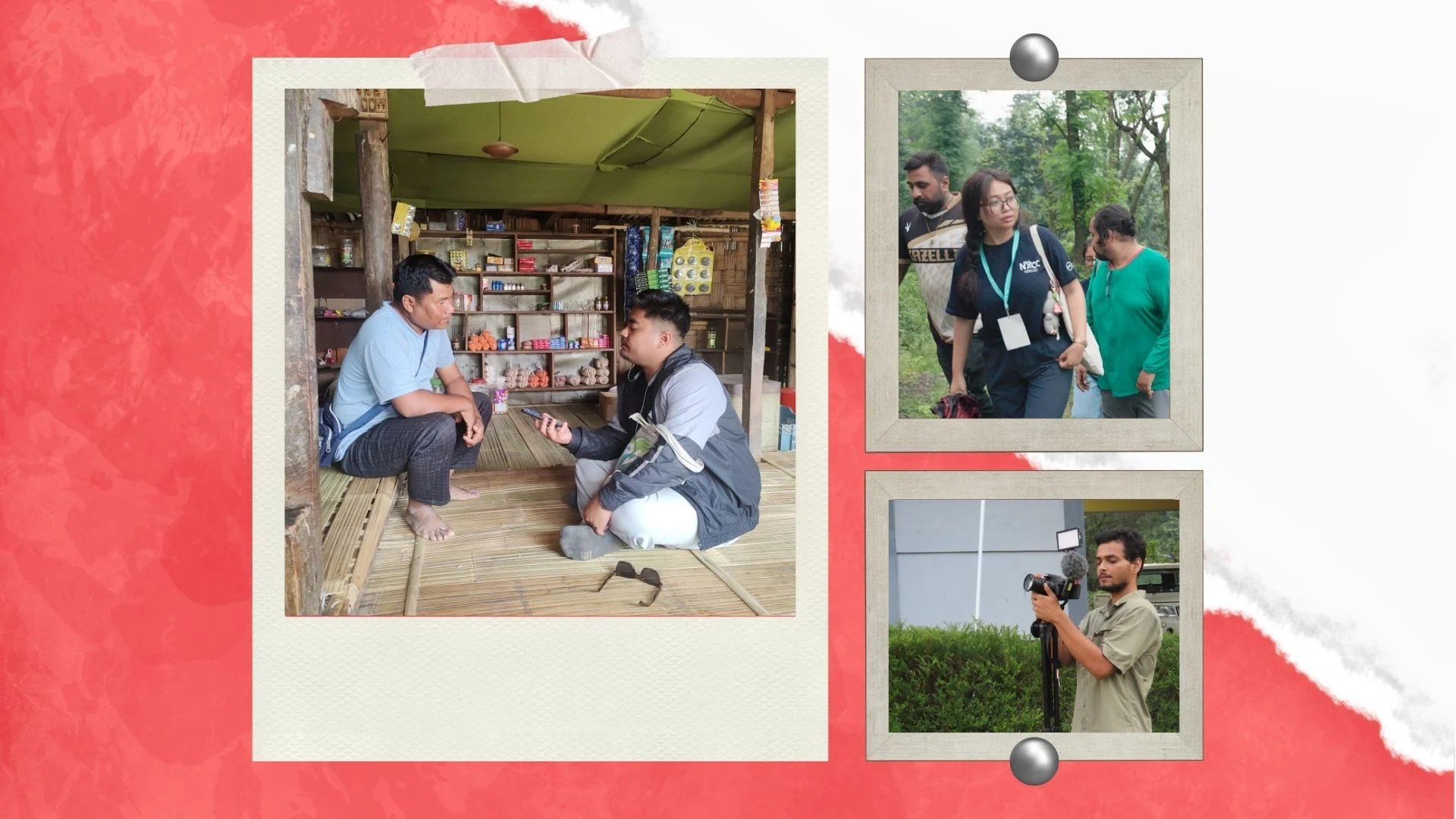The COVID-19 crisis has triggered mental health crises all over the globe, and has forced people to confront losses of the past, at a time when the future is uncertain. A sense of grief has been pervasive and has even seeped into workplaces.
For people working in the social sector, stress and trauma are often an inherent part of work. As Rohit Kumar of Apni Shala Foundation writes, “People working in social impact have had to deal with COVID-19 and its varying impacts at two levels—on one hand, they have to manage themselves and their own lives in this pandemic, and on the other, they are daily witnesses to how structural negligence, violence, and poorly-designed policies affect the lives of the communities they work with.”
Working remotely also means that most people are unable to notice signs of grief among their co-workers.
From leaders to frontline workers, these professionals often work in spaces that expose them to high levels of trauma, stress, violence, and abuse—increasing the risk of burnout or emotional exhaustion. A UK-based survey of social workers revealed that more than 75 percent of respondents were concerned about burnout, something that is even more common when people work remotely. Working remotely also means that most people are unable to notice signs of grief among their co-workers, creating an unhealthy information asymmetry.
To get a clearer insight into the impact of unresolved grief on organisations, McKinsey & Company published a report: The hidden perils of unresolved grief. Defining grief as a feeling of loss of deep-seated human needs such as identity, purpose, attachment, and control, the report examines the impact that grief can have among employees when it remains unresolved for a prolonged period.
Related article: Mental health at work
Understanding grief in the workplace
Grief is characterised by a feeling of loss and can arise due to both positive and negative events. While negative circumstances such as the loss of a friend or family member may seem like obvious sources of grief, positive events such as starting a new job or moving to a new city can also trigger this feeling.
And while personal losses occupy a large share of our lives, professional losses can also cause grief. During the pandemic, this has been exacerbated due to prolonged levels of uncertainty. Every day brings with it new changes.
All change is loss, and loss must be mourned.
Harry Levinson, a psychologist from the 1950s who studied the management of organisations, remarked, “All change is loss, and loss must be mourned.” Due to inadequate research, relatively little is known about the relationship between grief and the workplace, although the two definitely influence each other. More attention to this correlation is important.
What do the numbers say?
George Kohlrieser, one of the authors of the McKinsey report, claims to have seen first-hand how the harmful impact of unresolved grief affected “nearly a third of the 7,000-plus executives” he had worked with. The damage, Kohlriesser says, transcended both physical and mental boundaries, resulting in poor management of the organisation, along with other consequences on employees’ personal lives.
In 2003, James and Friedman estimated the financial cost of unresolved grief using the Grief Index, pegging the figure at USD 75 billion a year for companies in the United States. The index accounted for dips in performance and productivity owing to personal as well as professional losses incurred by the workers.

Leaders must begin to open themselves up to their colleagues, so as to create an air of assurance and camaraderie. | Picture courtesy: SOR Mission
What about other costs?
The McKinsey report uses real-life examples of employees who have gone through stages of grief in order to illustrate its impact. Understandably, some found it difficult to have a positive outlook while grieving, and being fixated on negativity and failure affected their work.
Unresolved grief can weaken leaders’ relationships at work.
Using the example of an executive in his forties, the report explores how unresolved grief can weaken leaders’ relationships at work. The report also comments on a lack of respect exhibited by leaders who might be experiencing grief, saying that, “The unhappiness and lack of self-respect a grieving leader feels can lead to a lack of respect for others”. It can also lead to displays of anger, which have an obvious negative effect in a workplace.
Resolving unresolved grief
In a way, the process of grieving is necessary for people to recognise and accept their emotions. George Bonanno, the author of The Other Side of Sadness: What the New Science of Bereavement Tells Us About Life After Loss, views grief as something natural and necessary to ensuring that we get enough space to accommodate the absence of something.
Another report from McKinsey & Company describes routes that organisations can take in order to avoid grief from settling with their employees. While resolving grief at an individual level requires a response that begins with becoming aware of one’s grief, organisations need to take steps to ‘set the right tone’ first, in order to make people feel comfortable talking about the issues they may be facing.
Here’s what the research suggests:
For people to be able to break the silence around mental health or grief, and discuss their issues openly, organisations must build an environment of compassion and empathy. Apart from providing opportunities to recognise grief and understand the process of resolving it, leaders must begin to open themselves up to their colleagues, so as to create an air of assurance and camaraderie. Unresolved grief is usually a result of reluctance to talk about the same, and therefore, it is imperative to have an open, non-judgemental outlook when people are grieving.
Related article: The politics of mental health and well-being
Denial of grief is common, being a “primal source of psychological comfort, protecting people from painful emotions.” It is, however, inadvisable to keep denying certain issues, even if they are difficult to discuss. After a point, it is important to acknowledge losses and recognise the problems that people are facing—in the moment or in the past.
People in leadership roles should be able to initiate conversations about grief at different points of time, so as to understand its sources better and be prepared for it in the future. This can be particularly tough, but it is a process that organisations should go through to empower employees to overcome barriers that keep them from reflecting on their experiences.
Adequate time and space to reflect on experiences is important. Employees, especially ones who are going through the process of grief, must be given adequate time for bereavement in the form of leaves. Leaders should not assume how their employees and their families are doing, and need to consider that they may need to look beyond the surface to understand their employees’ needs.
To reflect on their experiences and come to terms with change, organisations can build out unique rituals. The McKinsey report commends Japanese companies for having rituals that enable their employees to deal with senior leadership transitions. In certain Japanese companies, workers are given adequate time to think about their past and their role at the workplace before transitioning into the future. These rituals can take the form of events and celebrations, or even just leaves and breaks, that allow employees to better deal with organisational changes.
There are no silver bullets
At the end of the day, grief is a human emotion. One cannot expect it to be eliminated using techniques found in a handbook. Therefore, while the steps mentioned above might not work for everyone, it is important to try out methods that may work for your organisation, or consult someone who might be able to help.
The onus is also on organisations to recognise how the pandemic is fuelling grief and loss. The report puts it succinctly, “Grief is inevitable. Unresolved grief doesn’t have to be.” Leaders need to think about a simple question to start with: Are we doing enough to recognise unresolved grief?
—
Know more
- Learn more about how you can make your workplace safe for grief and how you can help your colleagues process their grief.





